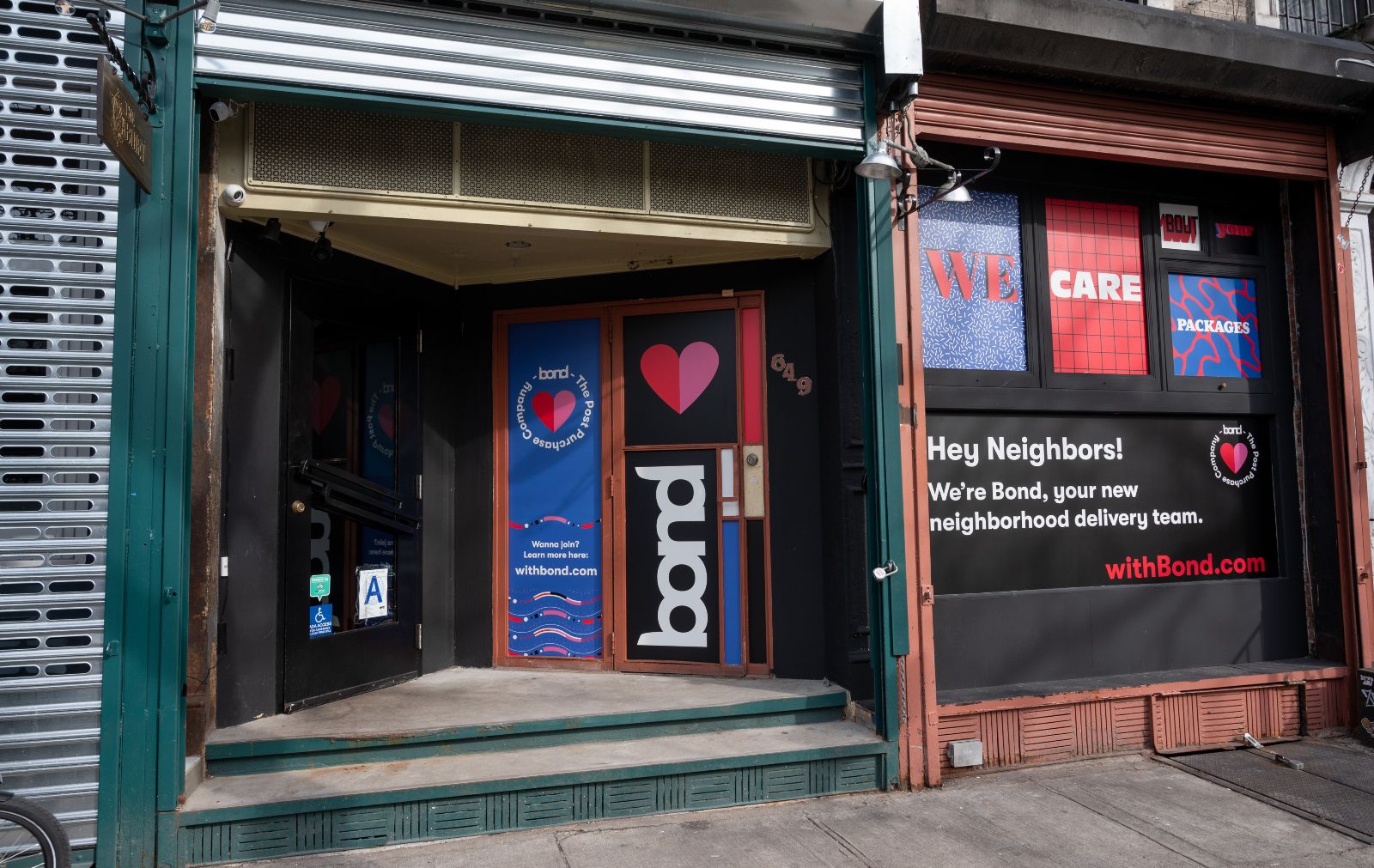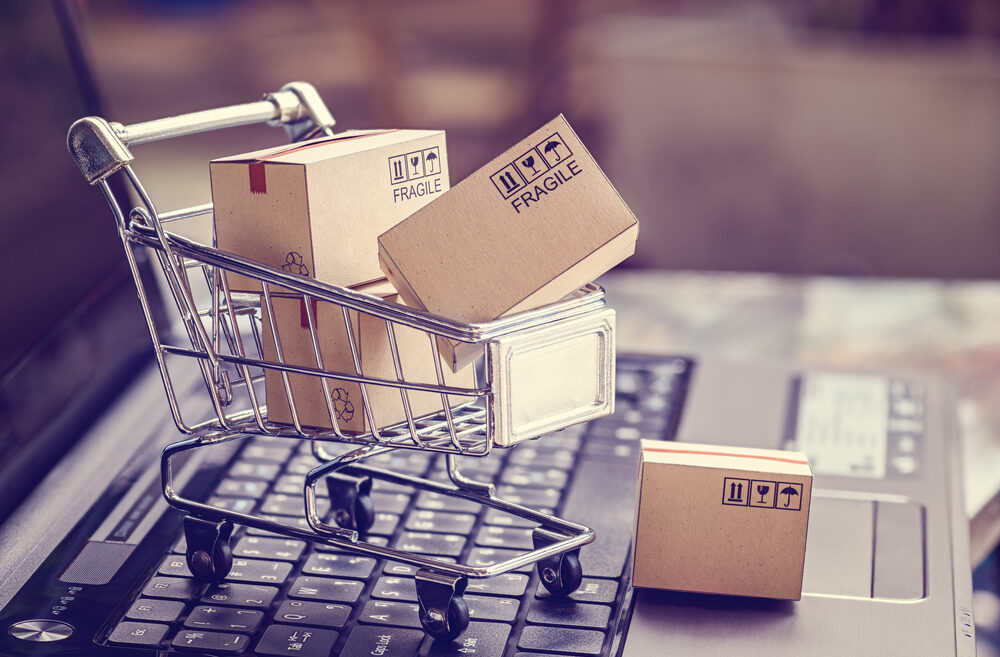Covid-19 has precipitated a dramatic digital retail transformation, propelling people who never shopped online to experience it for the first time, if only for a lack of brick-and-mortar alternatives.
For regular online shoppers, the pandemic and associated lockdowns have provided the impetus to consider new categories of products and services – like trying on clothes virtually, shipping a sofa overseas or finding safer cosmetics.
Behind many of the sites popular with consumers around the world, there is an Israeli entrepreneur or Israeli-made back-end technology.
How is Israeli ingenuity making online shopping easier? Here are 10 of our favorites.
One of the biggest casualties of lockdown culture has been the inability to try on clothes at a physical retailer. This may be Zeekit’s moment.
The company’s technology, developed in 2013, allows shoppers to upload a photo of themselves, then see how clothes from a Zeekit partner look on them in Zeekit’s “dynamic virtual fitting room.”
The idea came from cofounder Yael Vizel’s experience in the Israel Air Force, where she developed software for topographical analysis. She realized this same expertise could be applied to the human body.
Zeekit’s image-processing technology breaks a person’s picture into thousands of segments. It does the same for clothing. The two images are re-mapped into a final simulation.
The company cut a deal in 2018 with Amazon to allow brides to try on wedding dresses virtually. Zeekit is now focusing on signing up clothing designers who can “invite their customers to a Zeekit photoshoot so they can become virtual models.” The company works with Macy’s, ASOS, Net-a-porter, Adidas and other well-known brands.
If you need a well-fitting bra, Brayola has you covered. The Ramat Hasharon-based startup helps women find and purchase underwear from 200 partner brands using an online fitting technology and a smart recommendation algorithm.
Shoppers fill out a short questionnaire on the bras they already have and like (indicating brand and size). They then receive recommendations on other bras that fit similarly based on a database of customers with the same preferences.
When a purchase is made, Brayola sends the request to the manufacturer or online store, which fulfills the order. Brayola has a database of preferences for 2.5 million customers. The company has raised $12.5 million since it was founded in 2011 but ran into trouble last year covering costs. Brayola is currently looking for a buyer with deep pockets.
It’s commonplace to buy small items online and have them shipped overseas. Not so with large purchases such as sofas or ping-pong tables – once you get to a certain size, it becomes too expensive to ship by air.
Israeli startup Ladingo has developed specialized software for ecommerce retailers and shipping companies that enables them to combine shipments and optimize packing, so that your smart TV doesn’t sit on top of (and smash) the fine china. Israeli shipping giant Zim is the company’s lead investor.
Ladingo’s online calculator generates real-time price quotes, incorporating the shipping costs, customs and taxes. Ladingo hopes to lower the price of internationally shipped products by up to 50%. Ultimately, Ladingo aims to make “buying a fridge overseas as simple as buying an iPhone case on Amazon.”
The company’s cofounder, Hagar Rips, was recently named a finalist in the Microsoft-led Female Founders Competition.
https://youtu.be/Cd-Mmf8F8U0
Do cosmetics cause cancer? A 2018 study found that frequent use of specific cosmetic products might impact negatively on health, especially for women. Clearya is a free browser plugin that accesses information on cosmetic ingredients whenever users search an ecommerce site such as Amazon, Sephora, iHerb or Walmart.
The plugin cross-references what the manufacturer has listed on the ecommerce site with a database of identified substances and suspected toxins compiled from authorities including the World Health Organization, the US FDA, the European Chemicals Agency and the United Nations Environmental Program. Those include a variety of potential carcinogens, allergens and hormonal disrupters.
The company was started by Amit Rosner, a solar-energy entrepreneur whose wife was diagnosed with breast cancer. He suspected environmental factors played a role and created Clearya to help other cosmetic consumers.
What happens when AI meets the gift registry? You get an algorithm for finding the perfect present.
Findodo is for “high-stakes gifting situations, where you don’t want to get it wrong,” CEO Benny Melamed told ISRAEL21c – your partner’s birthday, for example.
Findodo walks users through a 21-step quiz with some pretty personal questions. “Does the person you’re thinking about have a short temper?” “Does he or she like to be the center of attention?” Findodo’s software is based on the same kind of artificial intelligence usually used to match candidates to jobs.
Once it has some suggested matches, Findodo presents links to third-party sites like Amazon and UncommonGoods, from which it collects an affiliate fee. Findodo says its conversion rate – the number of visitors who become paying customers – is four times the industry average for online gift giving. Most users are men. Why? “Because men are clueless, let’s face it,” Melamed quips.
Are you a medium or a small? If you’re shopping in a store, it’s easy enough to take two items, one of each size, into the dressing room. Not so online. The Sizer app on your mobile device scans your body and determines your exact size for the item of clothing you’re considering.
You stand two meters (6 feet) away, point the front-facing camera in your direction and the app guides you through several poses to capture your exact measurements.
There are versions for businesses, too – for example, SizerM2M aims to replace tailors’ manual measurements so they can design made-to-measure and bespoke clothing for customers online. SizerPro allows uniform manufacturers to measure their employees without physical contact – an advantage during the Covid-19 crisis.
Herzliya-based Sizer has a partnership with Israeli suit maker Bagir and European online fashion leader Zalando, and conducted a trial with Japanese retail giant Uniqlo.
You know what you like, now why can’t you find it at that online store? Donde Search uses computer vision and natural language processing to turn product images into structured data. Instead of typing in a keyword, a site with Donde’s visual search navigation will display images corresponding to styles and types of clothes – a neckline, cut or pattern.
CEO Liat Zakay developed the technology to combat what she calls “shopstration.”
Donde has a partnership with Forever 21 allowing shoppers to search by skirt length as well as color. Forever 21 saw a 20% increase in average purchase value after integrating Donde’s software. A partnership with online retailer Revolve resulted in a 16% boost in conversions.
Once shoppers have used the app for a while, it can learn their tastes and make recommendations. The company is based in Tel Aviv with an office in Palo Alto, California.

During the lockdowns, many consumers discovered, to their frustration, that while it might be easy to order online, getting your purchase delivered quickly was entirely different. Perishables could sit in a truck and arrive spoiled hours, sometimes days, later.
Tel Aviv and New York-based Bond aims to solve the “last mile” delivery conundrum through hardware, software and real estate. The hardware is electric cargo tricycles, which don’t get stuck in traffic jams. Software predicts which neighborhoods will be most likely to buy which products and when. Bond rents vacant real estate in those neighborhoods (think an abandoned barbershop) for “nano” distribution centers which bring the goods closer to the customer than a single centrally located warehouse. You order from your favorite local website, which then contacts Bond to ship the order.
Cofounders Asaf Hachmon and Michael Osadon got the idea for Bond from their previous startup, Shookit, a direct-to-consumer grocery company in Tel Aviv. Bond currently has six mini-distribution centers in New York.
Fabric (formerly known as CommonSense Robotics) has come up with another way to get your groceries and online purchases faster.
The company is building micro-fulfillment centers operated by robots. The distribution centers can sit inside a retailer’s physical store or, as reported last year by Venture Beat, even underground. (A reported 18,000 square foot grocery warehouse in Tel Aviv will have an average height of just 11 feet.)
Founded in 2015, the company raised a $110 million Series B round in 2019 in order to expand to the United States. Fabric has one micro-fulfillment center under construction in New York and 14 more sites under contract.
By building distribution centers closer to customers, Fabric CEO Elram Goren aims to “enable retailers to profitably fulfill one-hour deliveries or help businesses restock their storefronts more efficiently.”
Ninety-seven percent of shoppers say a company’s returns policy impacts their likelihood to purchase with that retailer. Twenty-three percent of online shoppers will actually abandon their shopping carts if they’re presented with poor return options.
Retailers want to keep their customers happy, but returns can be a source for abuse and fraud. An abuser could purchase an item, wear it and then return it for a refund. Or a fraudster could return a different (and less valuable) item while collecting the value of the original purchase. These kinds of frauds costs retailers an estimated $24 billion a year.
Forter’s new Returns Abuse Protection product helps merchants sift through legitimate and fraudulent return requests to catch abusive users. Using predictive algorithms and machine learning, Forter also flags payment and credit card fraud and account take-overs. Customers include Nordstrom, Fiverr, TGI Fridays and Priceline. That latter saw a 55% decrease in declined transactions after starting with Forter.















